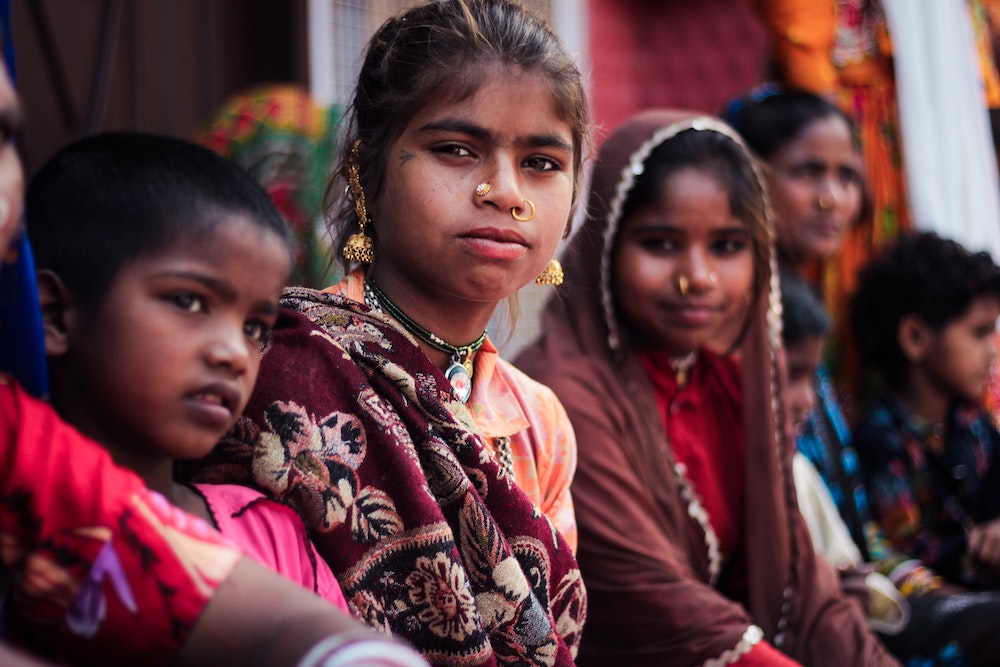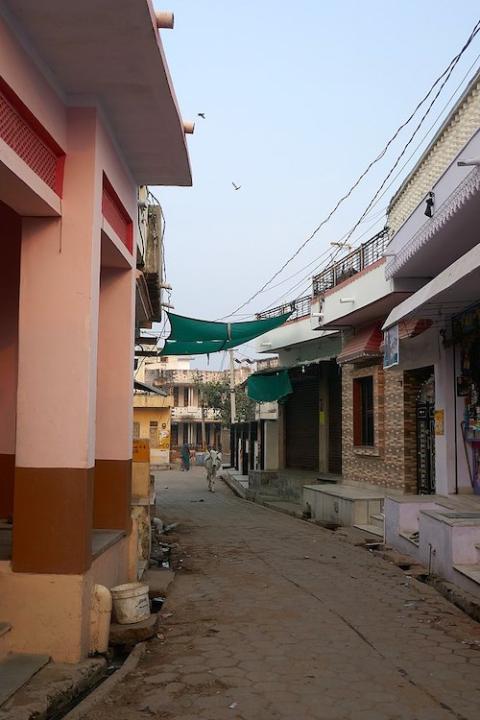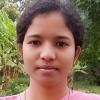
(Unsplash/Sharon Christina Rorvik)
She used to say "my courage is my capital." With this phrase, she continues to inspire, guide and teach me. I would like to share about this exceptional woman from whom I have learned much.
She is an incredible woman. She had no opportunity to go to a formal school. She had no education or degrees. Being an ordinary woman who does extraordinary things for herself and others is her greatest quality, and speaks volumes about her courage, wisdom and humanity.
Two years ago, I was doing my pastoral ministry in Rajasthan, a state in northwestern India. As my ministry as a Franciscan Sister of St. Joseph was education, once a week some other nuns and I would make home visits around the neighborhood of the school. And each evening we used to give free classes and tutoring for the street children, single-parent children, and our students who were "slow learners" around our mission area.
One day, another sister and I were on our way back to our convent and we met a woman who lived on the street near the local parish church. Her name was Meera Srivastava, a widow, and the mother of two young kids. She was possibly in her late 30s, and a daily wage earner.
She suddenly called out, "Sister, I want to open savings in a bank. I want to save for my family." I asked her if she was doing business or if she had a source of income.
"Do you have enough money to save?" I asked her — adding, "You are living on the street." She promptly replied, "I want to save because I want to buy plastic sheets for the roof of our house before the monsoon arrives. I want to save my family from the rain."
After a brief conversation with her, my companion and I told her that we would let her know what we found out about opening a savings account. Then we returned to the convent and later told our superior, who happened to be a social worker. We decided to help the woman.
The next day we went with the woman to the bank and asked about opening an account. Her daily savings was just 10 Indian rupees (13 cents), and the bank refused to open a savings account for her. The bank officials said the amount was too small to open a bank account and was not worthy of its time — besides she was an illiterate woman. She and we returned home disappointed.
Advertisement
However, the woman was so determined that she took up the challenge to become literate and learn reading, writing and arithmetic. Her main interest was learning basic mathematics, particularly multiplication, division, addition and subtraction.
So she enrolled for our daily evening tutoring sessions, after a whole day of work. We were so happy that she came to learn. In the meantime, she increased her savings amount with the help of our contributions.
After five months she asked us again, "Sister, what about my savings account? Shall we go back to the bank?" And we did.
Upon arriving at the bank, the woman met the manager and spoke to him with grit: "Earlier, you refused to open my savings account because the amount was too less as per the bank's criteria or requirement, and I was an illiterate then."
But, she informed him, now the scenario has changed! "I can read, write and do the simple mathematics," she challenged the manager. "Tell me to calculate any numerical with any principal amount. If I am unable to do so, you may refuse to open my savings account. If I can, please inform your officers to do without a calculator, and see who can do it faster." Now the manager was speechless seeing her determination, courage and optimism. So he permitted her to open a savings account in a rural bank.
Her primary intention of saving money was so that she could build a new house in due course of time.
It has been about two years, and now she has her own house. Her family is living with her as she hopes for a better, more dignified life for her children and herself, while fulfilling the kids' dreams — with grit!

Kherwa Street in Rajasthan, November 2019 (Wikimedia Commons/Ji-Elle)
Millions of women like Srivastava who are poor, vulnerable and needy need opportunities, empowerment and support so that they can have a better future.
Having met Srivastava and seen her struggles to improve her life has changed my perspective of life and mission as a nun who works in India. I firmly believe that women and girls who are at the fringe of society need education, gender justice, access to economic opportunities and participation, formal social protection measures, social safety nets, and many other protections and skills so that they improve their potentialities, social capital and agency.
Such measures will enable them to be active actors for change with needed social, cultural, political, educational, economic and political participation. When these happen, women and girls will equally contribute to the development of society.
For my part as a nun, I work together with others to create social awareness among all groups of people. After all, what matters most for society is that no girl or woman should be left behind.
[Monita Digal, from Kandhamal, Orissa, Eastern India, is a member of the Franciscan Sisters of St. Joseph. After her first profession in 2009 and a year of community experience, she completed a college degree in commerce. She has been teaching for five years, and is presently teaching at Nirmala Inter-College, Mithaura, Maharajganj, Uttar Pradesh as she works on a degree in education.]







